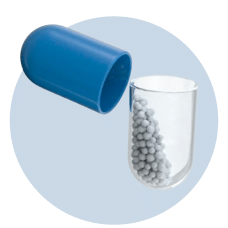Veramil 40mg Tablet
Product introduction
Veramil 40mg Tablet may be taken with or without food, but it is better to take it regularly at a fixed time each day as advised by your doctor. Keep using this medicine even if you feel well. If you stop taking it suddenly, your condition may worsen. This medicine is only part of a treatment program that should include a healthy diet, regular exercise, and weight reduction as advised by your doctor.
The most common side effects of this medicine include constipation, dizziness, nausea, hypotension, edema, fatigue, and headache. These are usually mild and disappear after a short time. Consult your doctor if they bother you or do not go away. Drinking alcohol should be avoided while taking this medicine as it may worsen the side effects.
Before taking this medicine, let your doctor know if you have any liver or kidney problems. Also, inform your doctor if you have very low blood pressure (hypotension), heart failure, or if you recently had a heart attack and have fluid in your lungs. Your doctor may want to monitor your blood pressure while using it and you may need frequent blood tests. Pregnant or breast-feeding women should consult their doctor before taking it.
Uses of Veramil Tablet
Side effects of Veramil Tablet
Common side effects of Veramil
- Edema (swelling)
- Heart failure
- Pulmonary edema
- Dizziness
- Nausea
- Constipation
How to use Veramil Tablet
How Veramil Tablet works
Safety advice
What if you forget to take Veramil Tablet?
All substitutes
Quick tips
- It may cause dizziness or sleepiness. Do not drive or do anything requiring concentration until you know how it affects you.
- It may cause you to feel lightheaded or weak especially when you stand up (orthostatic hypotension). Rise slowly if you have been sitting or lying down.
- It is best to avoid drinking alcohol while taking Veramil 40mg Tablet as it may make the side effects worse.
- Do not stop taking it suddenly without talking to your doctor first.
- It may cause dizziness or sleepiness. Do not drive or do anything requiring concentration until you know how it affects you.
- It may cause you to feel lightheaded or weak especially when you stand up (orthostatic hypotension). Rise slowly if you have been sitting or lying down.
- It is best to avoid drinking alcohol while taking Veramil 40mg Tablet as it may make the side effects worse.
- Do not stop taking it suddenly without talking to your doctor first.
- Veramil 40mg Tablet slows down the heartbeat and allows the blood vessels in the body to relax.
- This helps prevent angina attacks (chest pain caused by heart disease), certain abnormal heart rhythms, stroke and heart attack.
- It may cause dizziness or sleepiness. Do not drive or do anything requiring concentration until you know how it affects you.
- It may make you feel lightheaded or weak especially when you stand up (orthostatic hypotension). Rise slowly if you have been sitting or lying down.
- Do not stop taking it suddenly without talking to your doctor first.
- It is best to avoid drinking alcohol while taking Veramil 40mg Tablet as it may make the side effects worse.
Fact Box
Interaction with drugs
Patient concerns
User feedback
FAQs
What is Veramil 40mg Tablet? What is it used for?
How does Veramil 40mg Tablet work?
How long do I need to take Veramil 40mg Tablet?
Is Veramil 40mg Tablet safe?
Can Veramil 40mg Tablet cause dizziness? How do I prevent it?
What are the serious side effects of Veramil 40mg Tablet?
Who should not take Veramil 40mg Tablet?
What are the symptoms of overdose of Veramil 40mg Tablet?
What is Veramil 40mg Tablet? What is it used for?
How does Veramil 40mg Tablet work?
How long do I need to take Veramil 40mg Tablet?
Is Veramil 40mg Tablet safe?
Can Veramil 40mg Tablet cause dizziness? How do I prevent it?
What are the serious side effects of Veramil 40mg Tablet?
Who should not take Veramil 40mg Tablet?
What are the symptoms of overdose of Veramil 40mg Tablet?
Related ayurvedic ingredients
Disclaimer:
Tata 1mg's sole intention is to ensure that its consumers get information that is expert-reviewed, accurate and trustworthy. However, the information contained herein should NOT be used as a substitute for the advice of a qualified physician. The information provided here is for informational purposes only. This may not cover everything about particular health conditions, lab tests, medicines, all possible side effects, drug interactions, warnings, alerts, etc. Please consult your doctor and discuss all your queries related to any disease or medicine. We intend to support, not replace, the doctor-patient relationship.References
- Sampson KJ, Kass RS. Anti-Arrhythmic Drugs. In: Brunton LL, Chabner BA, Knollmann BC, editors. Goodman & Gilman’s: The Pharmacological Basis of Therapeutics. 12th ed. New York, New York: McGraw-Hill Medical; 2011. p. 831.
- Opie LH. Calcium Channel Blockers. In: Opie LH, Gersh BJ, editors. Drugs for the Heart. 8th ed. Philadelphia, Pennsylvania: Elsevier Saunders; 2013. pp. 73-78.
- Hume JR, Grant AO. Agents Used in Cardiac Arrhythmias. In: Katzung BG, Masters SB, Trevor AJ, editors. Basic and Clinical Pharmacology. 11th ed. New Delhi, India: Tata McGraw Hill Education Private Limited; 2009. p. 243.
- Briggs GG, Freeman RK, editors. A Reference Guide to Fetal and Neonatal Risk: Drugs in Pregnancy and Lactation. 10th ed. Philadelphia, PA: Wolters Kluwer Health; 2015. pp. 1469-70.
Marketer details
The list of available options shown with the same composition has been prepared upon the advice of registered medical practitioners, pharmacists affiliated with TATA 1MG. TATA 1MG does not promote any pharmaceutical product of any particular company, and all recommendations are based on the medical opinion, advisories from specialist medical and pharmaceutical professionals.
Lab tests offered by us














